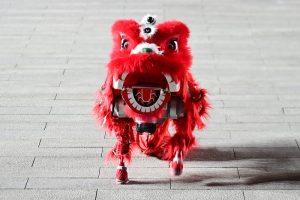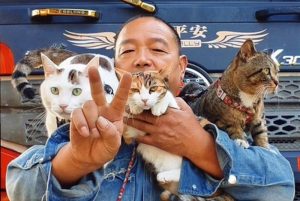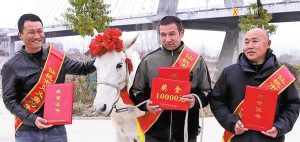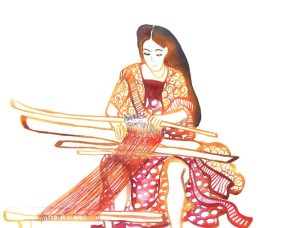Level 3
Story of the Twelve Animals in the Chinese Zodiac
Story of the Twelve Animals in the Chinese Zodiac
十二生肖的故事
十二生肖的故事
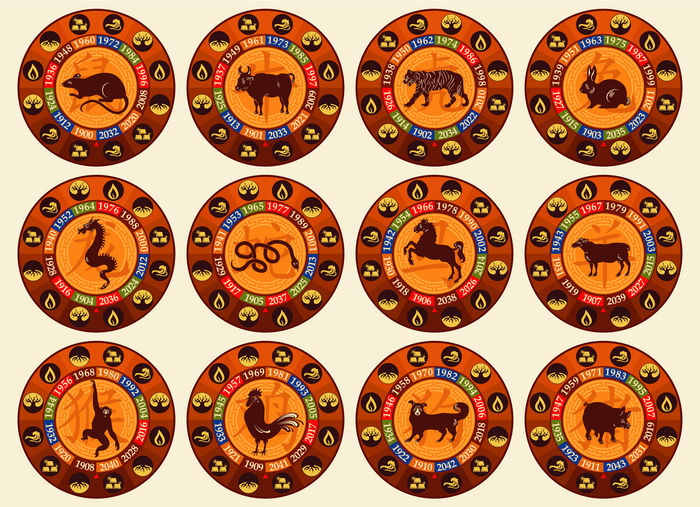

AA
AA
AA
AA
Simplified
Traditional



Pinyin



Pinyin
Keywords
生肖 - shēngxiào - animal from the Chinese zodiac
故事 - gùshi - narrative / story / tale
出生 - chūshēng - to be born
动物 - dòngwù - animal
周期 - zhōuqī - period / cycle
久 - jiǔ - long time / long duration of time
报名 - bàomíng - to sign up / to enter one's name / to apply / to register
老鼠 - lǎoshǔ - rat / mouse
邻居 - línjū - neighbour
担心 - dānxīn - to worry / worried / anxious
睡过头 - shuìguòtóu - to oversleep
牛 - niú - cow / ox / bull
个子 - gèzi - height / stature / build / size
腿 - tuǐ - leg
跑 - pǎo - to run
办法 - bànfǎ - means / method / way (of doing sth)
声音 - shēngyīn - voice / sound
清楚 - qīngchu - clear / distinct
同意 - tóngyì - to agree / to consent / to approve
背 - bēi - to carry on the back or shoulder
赶紧 - gǎnjǐn - hurriedly / without delay
跳 - tiào - to jump / to hop / to skip
只得 - zhǐdé - to have no alternative but to / to be obliged to
老虎 - lǎohǔ - tiger
兔 - tù - rabbit
龙 - lóng - dragon
蛇 - shé - snake / serpent
马 - mǎ - horse
羊 - yáng - sheep / goat / ram
猴 - hóu - monkey
鸡 - jī - chicken / rooster
猪 - zhū - pig
排名 - páimíng - to rank / ranking
Grammar
作为 + Noun - Expressing "as (in the capacity of) / to look upon (sth as)..." with "zuòwéi + Noun"
每一个人在出生年都有一种动物作为生肖,12年是一个周期。
…呢? - Expressed to soften the tone of questions with "...ne?" (used to make questions more indirect and uncertain in tone)
为什么生肖是这12种动物呢?
Time or Verb Phrase + (以)前 - Expressing "before" a specific time or action with "Time or Verb Phrase + (yǐ)qián"
很久以前的一天,玉皇大帝说:“我要选12种动物做人的生肖,一年一种动物。选一天报名,先到的12种动物就是十二生肖。”
就是 + Noun / Noun Phrase - Expressing "just / only…" with "jiùshì + Noun / Noun Phrase" (places greater emphasis to eliminate other options in order to focus in on something)
选一天报名,先到的12种动物就是十二生肖。
Subject + 让 + Sb / Sth + Verb / Verb Phrase - Expressing "to make or let sb / sth to do sth" with "Subject + ràng + sb / sth + Verb / Verb Phrase" (causative verb)
猫担心早上睡过头,就让老鼠在那天早上叫它起床,老鼠说“没问题”。
它要给牛唱歌,可又说自己声音小,为了让牛听清楚应该站在牛身上唱。
Subject + 叫 + Sb / Sth + Verb - Expressing "to ask or order sb / sth to do sth" with "Subject + jiào + sb / sth + Verb" (causative verb)
猫担心早上睡过头,就让老鼠在那天早上叫它起床,老鼠说“没问题”。
没想到... - Expressing "didn't expect…" with "méixiǎngdào…"
没想到老鼠口是心非,那天早上并没有叫猫,而是自己去报名了。
并 + Negative - Expressing emphasis on the negative with "bìng + Negative"
没想到老鼠口是心非,那天早上并没有叫猫,而是自己去报名了。
不是 / 没有…,而是… - Expressing "not / did not…, but rather…" with "bùshì / méiyǒu...,érshì..."
没想到老鼠口是心非,那天早上并没有叫猫,而是自己去报名了。
给 + Noun + Verb - Expressing a more informal "for sb / sth..." with "gěi + Noun + Verb"
它要给牛唱歌,可又说自己声音小,为了让牛听清楚应该站在牛身上唱。
Statement, 可(是)… - Expressing "but / however…" with "Statement,kě(shì)…" (more informal and a bit stronger in tone 但是)
它要给牛唱歌,可又说自己声音小,为了让牛听清楚应该站在牛身上唱。
又 + Verb / Adj. - Expressing "(once) again / also / and yet…" with "yòu + Verb / Adj." (used for past events)
它要给牛唱歌,可又说自己声音小,为了让牛听清楚应该站在牛身上唱。
为了... - Expressing "in order to / for the purpose of…" with "wèile..."
它要给牛唱歌,可又说自己声音小,为了让牛听清楚应该站在牛身上唱。
往 + Direction / Place + Verb - Expressing that the action of the verb is "to / towards (a certain direction / place)" with "wǎng + Direction / Place + Verb"
牛同意了,就背着它往前跑。
Verb + 下来 - Expressed after verbs to indicate a downward movement towards the speaker / location with "Verb + xiàlái"
老鼠赶紧从牛身上跳下来,第一个去报名了。
而… - Expressing "and / as well as / and so…" with "ér..." (indicates contrast, causal relation or change of state)
老鼠赶紧从牛身上跳下来,第一个去报名了。而一直背着老鼠的牛,只得了第二名。
Time or Verb Phrase + (以)后 - Expressing "after" a specific time or action with "Time or Verb Phrase + (yǐ)hòu"
从那以后,十二生肖的动物就这样排名了。
Proper Nouns
玉皇大帝 - Yùhuáng Dàdì - Jade EmperorIdioms
口是心非 - kǒushìxīnfēi - lit. mouth says yes, heart no / fig. duplicity / empty words
Ready to complete the lesson's exercises?

Complete Assignment Reading
Live dictionary
 Stroke
Stroke Write
Write















